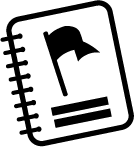There are steps you can take every day to protect children from child abuse and neglect in your program. These same steps help keep you protected from false allegations from a child, parent, or co-worker. Take these steps seriously to protect children and yourself.
- Make sure your background check clearance has been approved. Follow program policies regarding line-of-sight supervision until your background check has been cleared. Immediately report any convictions or changes in your status.
- Avoid being alone with children or youth. If you are alone with children, make sure protections are in place (CCTV, vision panels, unannounced supervisor visits).
- If your program has policies that make you feel uncomfortable (like being alone with the first child who arrives or the last child who leaves), talk to your manager about options for supervision.
- Ensure CCTV is operational and monitored.
- Ensure vision panels and windows allow unobstructed views into program spaces.
- Monitor restrooms and the amount of time children have been gone.
- Complete incident reports after any child is injured.
- Approach and report any unknown visitors in the building.
- Wear your ID badge at all time while working.
- Never use physical discipline or corporal punishment practices (these are not permitted in DoD programs).
- Never hit a child even in “play.”
- Ask for help when you are feeling overwhelmed by a situation. Make sure you take breaks when needed.
- Never force physical contact like hugs, sitting on laps, or holding hands. Talk to your manager about your program’s touch policy.
- Use the buddy system when on field trips or outside of the facility. Insist older school-age children and youth never use the restroom by themselves or go off by themselves.
- Use active supervision strategies with children and youth. Check on children regularly.
- Welcome families into the program. Get to know them and follow your program’s open-door policy.
|


